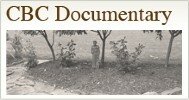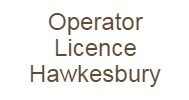Role of the Coroner
Responsibility: Office of the Coroner
The coroner is a judicial officer appointed by the government. He investigates to find the causes and circumstances of a death where questions arise.
Any death that occurs in Quebec can be reported to the coroner.
To learn more about the situations that require a coroner to be notified at the time of death, consult the complete information.
In the event of an obscure or violent death, an investigating coroner must be notified in order to conduct an investigation and, exceptionally, a public inquest.
This notification usually comes from a physician or police officer for any death :
- whose probable cause cannot be established
- that appears to have occurred under obscure or violent circumstances, such as an accident, suicide or homicide.
In addition, the coroner must be informed of any death that occurs :
- in an adapted work center for persons with disabilities;
- in a rehabilitation center
- in a place where the person was in custody
- in a detention facility
- in a penitentiary
- in a police station;
- in a foster home
- in a daycare centre
- in a youth center;
- at a disaster.
The coroner must also be informed :
- of the repatriation of the body of a deceased person outside Quebec for cremation or burial if:
- the death occurred in an obscure or violent manner
- the identity of the person is unknown
- probable medical causes have not been established;
- the transportation of the body of a person who died in Quebec outside the province, regardless of the cause or circumstances of death.
INVESTIGATION
Receipt of a notice results in an investigation by the coroner serving the place where the body is or is presumed to be located. However, in the case of repatriation, the investigation is conducted by the coroner serving the place of burial or cremation.
The investigation is a private process of information gathering by an investigating coroner, who shall:
- identify the victim;
- determine the place and time of death
- determine the probable medical cause of death
- determine the circumstances of the death;
- make recommendations for the better protection of human life, if appropriate.
During this process, the Coroner has certain powers to carry out his or her mandate, including
- examine or cause to be examined the body
- photograph or cause to be photographed the body, a place inspected or an object examined or seized
- ordering forensic examinations (autopsy, toxicological analysis, etc.)
- seize objects or documents;
- inspecting or prohibiting access to a place;
- require a police officer to conduct an investigation or further investigation.
A public report shall be made at the conclusion of this process and shall be filed with the coroners' records.
If, during or after the investigation, the Coroner is of the opinion that a public inquiry would be useful, he or she shall forthwith make a recommendation to the Chief Coroner setting out his or her reasons therefor.
PUBLIC INQUIRY
The Chief Coroner may order a public inquest into one or more deaths that occurred in a single event or series of events.
The Chief Coroner selects an investigating coroner from the pool of legally trained coroners.
The coroner-investigator may summon to the inquest, for the purpose of questioning, any person whom he or she believes to be in a position to provide information useful to the inquest or likely to enlighten it. He may also order him to bring an object or document.
He may also summon witnesses to the inquest at the request of an interested person, who may be a person, association, department or agency that establishes its interest in the inquest to the satisfaction of the coroner.
A public report is produced at the end of this process and is filed with the Coroners' Records.












